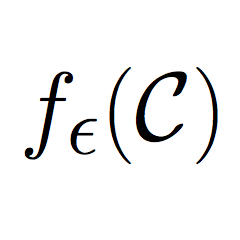Reviewing Policy
I feel strongly that everyone who submits articles regularly to peer-reviewed publications should contribute proportionally to the reviewing process. On average, I submit no more than 6 peer-reviewed articles per year. (These are almost exclusively “journal papers” that are typically ~25-30 pages full of mathematical proofs.) As such, since each article in my field is typically reviewed by 2 reviewers, I feel that I contribute sufficiently to the overall system by reviewing 12 articles (of the kind that I submit) per year, i.e., one per month. I also contribute to the system through my time as an editor; see below. Overall, I feel confident saying that with one review per month I contribute to the reviewing process at least as much as I take through the submission of my own articles.
Borrowing an idea from a colleague, I have instituted the following policy: I maintain a queue of new articles to review, each of which is assigned to an upcoming month in the calendar when I accept the review invitation. (I also review revisions of articles, but do not account for these in my limitations described here.) If obtaining the review by the end of that month is acceptable for the editor/journal, then I accept the invitation; otherwise, I decline.
Area Editorships
I hold the position of Area Editor for the following journals.
Mathematics of Operations Research
Mathematics of Operations Research is an international journal of the Institute for Operations Research and the Management Sciences (INFORMS). The journal invites articles concerned with the mathematical and computational foundations in the areas of continuous, discrete, and stochastic optimization; mathematical programming; dynamic programming; stochastic processes; stochastic models; simulation methodology; control and adaptation; networks; game theory; and decision theory. Also sought are contributions to learning theory and machine learning that have special relevance to decision making, operations research, and management science. The emphasis is on originality, quality, and importance; correctness alone is not sufficient. Significant developments in operations research and management science not having substantial mathematical interest should be directed to other journals such as Management Science or Operations Research.
Associate Editorships
I hold the position of Associate Editor for the following journals.
IMA Journal of Numerical Analysis
The IMA Journal of Numerical Analysis (IMAJNA) publishes original contributions to all fields of numerical analysis; articles will be accepted which treat the theory, development or use of practical algorithms and interactions between these aspects. Occasional survey articles are also published.
Mathematical Programming
Mathematical Programming publishes original articles dealing with every aspect of mathematical optimization; that is, everything of direct or indirect use concerning the problem of optimizing a function of many variables, often subject to a set of constraints. This involves theoretical and computational issues as well as application studies. Included, along with the standard topics of linear, nonlinear, integer, conic, stochastic and combinatorial optimization, are techniques for formulating and applying mathematical programming models, convex, nonsmooth and variational analysis, the theory of polyhedra, variational inequalities, and control and game theory viewed from the perspective of mathematical programming. The editorial boards are particularly interested in novel applications of mathematical programming and interfaces with engineering, economics, and computer science. Articles primarily concerned with computational issues such as implementation and testing should in general be submitted to Mathematical Programming Computation.
Mathematical Programming Computation
Mathematical Programming Computation (MPC) publishes original research articles advancing the state of the art of practical computation in Mathematical Optimization and closely related fields. Authors are required to submit software source code and data along with their manuscripts (while open-source software is encouraged, it is not required). Where applicable, the review process will aim for verification of reported computational results.
Mathematics of Operations Research
Mathematics of Operations Research is an international journal of the Institute for Operations Research and the Management Sciences (INFORMS). The journal invites articles concerned with the mathematical and computational foundations in the areas of continuous, discrete, and stochastic optimization; mathematical programming; dynamic programming; stochastic processes; stochastic models; simulation methodology; control and adaptation; networks; game theory; and decision theory. Also sought are contributions to learning theory and machine learning that have special relevance to decision making, operations research, and management science. The emphasis is on originality, quality, and importance; correctness alone is not sufficient. Significant developments in operations research and management science not having substantial mathematical interest should be directed to other journals such as Management Science or Operations Research.
Operations Research
Operations Research (OPRE) is a flagship journal for the INFORMS community, and has been so since its inception in the 1950s. Operations Research is committed to publishing papers that advance the state-of-the-art knowledge in the field of operations research; that is, in how to use analytical methods to improve decision-making. Operations Research’s mission is to be the leading platform for innovative and impactful research in the field of operations research.
SIAM Journal on Optimization
SIAM Journal on Optimization (SIOPT) contains research articles on the theory and practice of optimization. The areas addressed include linear and quadratic programming, convex programming, nonlinear programming, complementarity problems, stochastic optimization, combinatorial optimization, integer programming, and convex, non-smooth and variational analysis. Contributions may emphasize optimization theory, algorithms, software, computational practice, applications, or the links between these subjects.
